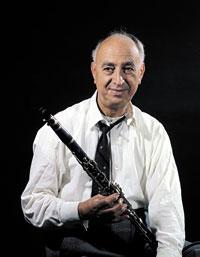 Mezz Mezzrow is one of those fascinating, exceedingly odd figures in jazz history about whom I could write instructively and at length if I felt so moved. Alas, I don’t, at least not today, so I’ll leave it to Wikipedia to briefly tell his story. Suffice it for now to say that Mezzrow wasn’t quite the worst clarinetist in the world, that he is widely and plausibly believed to have introduced Louis Armstrong to marijuana in 1928, and that (yes, I’m really going somewhere with this) he wrote a self-aggrandizing but nonetheless immensely readable autobiography called Really the Blues, originally published in 1946 and newly reprinted by New York Review Books, that I found altogether invaluable back when I was writing Pops: A Life of Louis Armstrong.
Mezz Mezzrow is one of those fascinating, exceedingly odd figures in jazz history about whom I could write instructively and at length if I felt so moved. Alas, I don’t, at least not today, so I’ll leave it to Wikipedia to briefly tell his story. Suffice it for now to say that Mezzrow wasn’t quite the worst clarinetist in the world, that he is widely and plausibly believed to have introduced Louis Armstrong to marijuana in 1928, and that (yes, I’m really going somewhere with this) he wrote a self-aggrandizing but nonetheless immensely readable autobiography called Really the Blues, originally published in 1946 and newly reprinted by New York Review Books, that I found altogether invaluable back when I was writing Pops: A Life of Louis Armstrong.
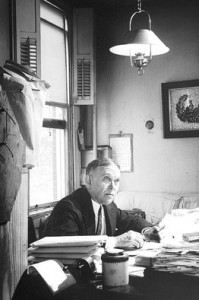 The reason why I bring him up now is that I ran across this passage, about which I’d completely forgotten, while rereading Really the Blues over the weekend. The date is 1926, the “Dave” referred to in the first sentence is the great jazz drummer Dave Tough, the Austin High Gang was a group of young white jazz musicians from Chicago that also included Tough and Bud Freeman, and “muta” and “muggles” are, of course, marijuana, of which Mezzrow was a celebrated dealer:
The reason why I bring him up now is that I ran across this passage, about which I’d completely forgotten, while rereading Really the Blues over the weekend. The date is 1926, the “Dave” referred to in the first sentence is the great jazz drummer Dave Tough, the Austin High Gang was a group of young white jazz musicians from Chicago that also included Tough and Bud Freeman, and “muta” and “muggles” are, of course, marijuana, of which Mezzrow was a celebrated dealer:
It was little Dave who gave me a knockdown to George Jean Nathan and H.L. Mencken, two guys who could mess with the King’s English too. Dave used to read The American Mercury from cover to cover, especially the section called “Americana” where all the bluenoses, bigots, and two-faced killjoys in this land-of-the-free got a going-over they never forgot. That Mercury really got to be the Austin High Gang’s Bible. It looked to us like Mencken was yelling the same message in his magazine that we were trying to get across in our music; his words were practically lyrics to our hot jazz. I dug him all the way, because The Mercury gave you the same straight-seeing perspective that muta does—to me that hard-cutting magazine was a load of literary muggles.
How could I possibly have failed to include that paragraph in my Mencken biography? Ah, well, you can’t think of everything….
* * *
Tommy Ladnier and His Orchestra play “Weary Blues” in 1938. Ladnier is the trumpeter, and the performance also features Sidney Bechet on clarinet and soprano saxophone and Mezz Mezzrow on clarinet:



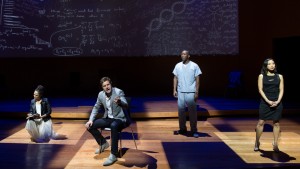 “Smart People” is set in and around Harvard. The characters are Valerie (Tessa Thompson), a light-skinned black stage actor who would be struggling were she not the scion of a well-heeled family; Jackson (Mahershala Ali), a dark-skinned black surgical intern who runs an inner-city clinic on the side; Ginny (Anne Son) a Chinese-Japanese-American psychologist-professor who studies “race and identity among Asian-American women”; and Brian (Joshua Jackson), a white neuroscientist who believes he’s proved that white people are biologically predisposed to racism. All four are very smart, very attractive, very smug, very prickly, and competitively progressive, by which I mean that they preface every other sentence they utter by assuring you of the impeccability of their liberalism: “My politics are such that I can make that joke. With people who know me.” They are, in short, comfy inhabitants of the academic monoculture—but not nearly as comfy, or as pristinely free of prejudice, as they suppose themselves to be.
“Smart People” is set in and around Harvard. The characters are Valerie (Tessa Thompson), a light-skinned black stage actor who would be struggling were she not the scion of a well-heeled family; Jackson (Mahershala Ali), a dark-skinned black surgical intern who runs an inner-city clinic on the side; Ginny (Anne Son) a Chinese-Japanese-American psychologist-professor who studies “race and identity among Asian-American women”; and Brian (Joshua Jackson), a white neuroscientist who believes he’s proved that white people are biologically predisposed to racism. All four are very smart, very attractive, very smug, very prickly, and competitively progressive, by which I mean that they preface every other sentence they utter by assuring you of the impeccability of their liberalism: “My politics are such that I can make that joke. With people who know me.” They are, in short, comfy inhabitants of the academic monoculture—but not nearly as comfy, or as pristinely free of prejudice, as they suppose themselves to be.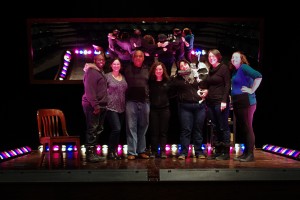 The Court Theatre’s production of Satchmo at the Waldorf closed on Sunday. Barry Shabaka Henley’s final performance was, by all accounts, a knockout. Meanwhile, the American Conservatory Theatre’s remounting of the off-Broadway production of Satchmo has now
The Court Theatre’s production of Satchmo at the Waldorf closed on Sunday. Barry Shabaka Henley’s final performance was, by all accounts, a knockout. Meanwhile, the American Conservatory Theatre’s remounting of the off-Broadway production of Satchmo has now 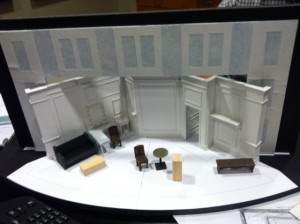 Needless to say, I haven’t been in Florida for pleasure. Not only have I been reviewing shows there, but on Friday I had my first face-to-face production meeting for Palm Beach Dramaworks’ upcoming
Needless to say, I haven’t been in Florida for pleasure. Not only have I been reviewing shows there, but on Friday I had my first face-to-face production meeting for Palm Beach Dramaworks’ upcoming 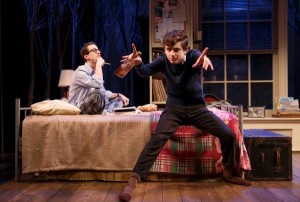 •
•